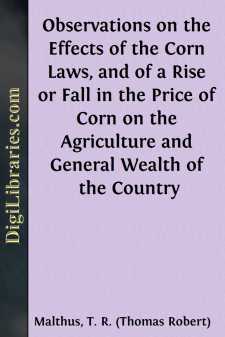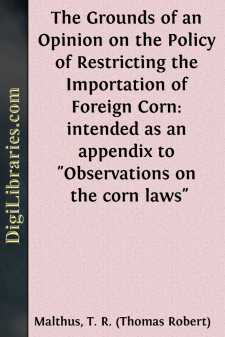Categories
- Antiques & Collectibles 13
- Architecture 36
- Art 48
- Bibles 22
- Biography & Autobiography 813
- Body, Mind & Spirit 142
- Business & Economics 28
- Children's Books 14
- Children's Fiction 11
- Computers 4
- Cooking 94
- Crafts & Hobbies 4
- Drama 346
- Education 46
- Family & Relationships 57
- Fiction 11829
- Games 19
- Gardening 17
- Health & Fitness 34
- History 1377
- House & Home 1
- Humor 147
- Juvenile Fiction 1873
- Juvenile Nonfiction 202
- Language Arts & Disciplines 88
- Law 16
- Literary Collections 686
- Literary Criticism 179
- Mathematics 13
- Medical 41
- Music 40
- Nature 179
- Non-Classifiable 1768
- Performing Arts 7
- Periodicals 1453
- Philosophy 64
- Photography 2
- Poetry 896
- Political Science 203
- Psychology 42
- Reference 154
- Religion 513
- Science 126
- Self-Help 84
- Social Science 81
- Sports & Recreation 34
- Study Aids 3
- Technology & Engineering 59
- Transportation 23
- Travel 463
- True Crime 29
Nature and Progress of Rent
Categories:
Description:
Excerpt
The rent of land is a portion of the national revenue, which has always been considered as of very high importance.
According to Adam Smith, it is one of the three original sources of wealth, on which the three great divisions of society are supported.
By the Economists it is so pre-eminently distinguished, that it is considered as exclusively entitled to the name of riches, and the sole fund which is capable of supporting the taxes of the state, and on which they ultimately fall.
And it has, perhaps, a particular claim to our attention at the present moment, on account of the discussions which are going on respecting the corn laws, and the effects of rent on the price of raw produce, and the progress of agricultural improvement.
The rent of land may be defined to be that portion of the value of the whole produce which remains to the owner of the land, after all the outgoings belonging to its cultivation, of whatever kind, have been paid, including the profits of the capital employed, estimated according to the usual and ordinary rate of the profits of agricultural stock at the time being.
It sometimes happens, that from accidental and temporary circumstances, the farmer pays more, or less, than this; but this is the point towards which the actual rents paid are constantly gravitating, and which is therefore always referred to when the term is used in a general sense.
The immediate cause of rent is obviously the excess of price above the cost of production at which raw produce sells in the market.
The first object therefore which presents itself for inquiry, is the cause or causes of the high price of raw produce.
After very careful and repeated revisions of the subject, I do not find myself able to agree entirely in the view taken of it, either by Adam Smith, or the Economists; and still less, by some more modern writers.
Almost all these writers appear to me to consider rent as too nearly resembling in its nature, and the laws by which it is governed, the excess of price above the cost of production, which is the characteristic of a monopoly.
Adam Smith, though in some parts of the eleventh chapter of his first book he contemplates rent quite in its true light, and has interspersed through his work more just observations on the subject than any other writer, has not explained the most essential cause of the high price of raw produce with sufficient distinctness, though he often touches on it; and by applying occasionally the term monopoly to the rent of land, without stopping to mark its more radical peculiarities, he leaves the reader without a definite impression of the real difference between the cause of the high price of the necessaries of life, and of monopolized commodities.
Some of the views which the Economists have taken of the nature of rent appear to me, in like manner, to be quite just; but they have mixed them with so much error, and have drawn such preposterous and contradictory conclusions from them, that what is true in their doctrines, has been obscured and lost in the mass of superincumbent error, and has in consequence produced little effect....





